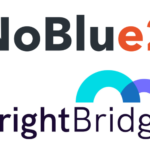Nearly eighteen months on from the first UK lockdown, it’s still unclear when we’ll get back to normal. Some are even predicting a ‘new normal’ or the ‘next normal’. But what will this post-Covid era look like?
After spending so much time adapting to changes and reorganising their businesses, what can leaders expect next? What does business look like for the rest of 2021?
Home Working and Hybrid Working
The flexibility of working from home – while vaunted and predicted for many years – never became widespread. Employers preferred workers to be in the office and few actively promoted home working. The pandemic has, however, fast-tracked remote working and made it the norm for most office-based workers.
It seems likely that home working will continue – certainly for the rest of 2021 – and could become standard practice in the longer term. Only a few businesses seem to be requiring workers to return full-time to the office. Most are adopting hybrid approaches, allowing staff more flexibility about working from home or from the office. In turn, this will lead to less demand for commercial property, perhaps with companies looking to downsize their bases to save money. Some office buildings may even be repurposed as residential units, especially given the UK’s shortage of residential accommodation.
With many of us working part-time from home, the in-person meeting could become more of an exception than a rule. And video call software will remain a preferred method for meeting suppliers and clients.
Gradual Economic Recovery
As hospitality reopens and consumer confidence returns, we can expect the economy to begin to recover from its 10% slump in 2020. Consumer spending will gradually pick up and prices will increase, causing inflation. After a steep rise in the rate of inflation in the early part of the year, July saw a reduction. The bank of England has stated that rising inflation would be transitory, and the most recent figures certainly seem to bear this out. It remains to be seen what happens during the rest of the year, though.
Typically, an economic downturn is followed by a period of resurgence. This boom-and-bust cycle is inexorable, but the recovery from the pandemic downturn may be even stronger than normal. Consumers were forced in large numbers across the world to stay at home due to lockdowns. This meant they spent less – on travel, on fuel, on food and on impulsive purchases – and many months later, those whose incomes remained the same are now able to use their increased disposable income and buy the things they may have earlier been prevented from buying.
Consumer confidence is now at its highest since the pandemic began – in fact it hasn’t been this high since May 2017. While renewed optimism is good news for all businesses, there is some speculation, however, that the ending of the furlough scheme – in September – may slow the economic rebound.
The upturn has been very real for smaller businesses though. eBay says that it has experienced a 237% surge in small shops setting up on its platform compared to last year.
Continued Travel Restrictions
For companies conducting business internationally, the rest of the year will likely remain unpredictable. Whether a country is on the UK’s red, amber or green list dictates how easy it is for you to travel there. Of course, some obvious occupations are exempt from the rules, but for the vast majority that’s not the case. And even if a country is safe and accessible now, it doesn’t mean that things might not change quickly and you could become trapped overseas because the rules have suddenly changed.
Business has become increasingly globalised during this century. But travel restrictions due to Covid increase the difficulty of conducting international business by limiting the opportunity for in-person meetings. Business often hinges on how well people connect, and interactions are so much harder to make via a video call. This could continue to restrict international businesses and encourage them to concentrate on domestic business.
With international travel impeded by border closures, it’s pretty much a given that we’ll not be touring the world freely and easily this year for leisure either. Certainly, restrictions have meant major difficulties for travel businesses – and there is little prospect of change in the near future. Many travel operators and airlines have seen business dramatically impacted this summer and their incomes have been substantially reduced.
On the flip side, domestic hospitality and leisure industries have been boosted. With more people feeling forced to take staycations, there has been more consumer spending at home – again adding a welcome boost to the economy.
Increased Innovation
It’s well documented how ‘necessity is the mother of invention’ – when people are faced with difficult problems, they are driven to devise new solutions. This explains how we came to invent marine navigation techniques hundreds of years ago just as much as how we more recently invented the airplane and the car.
The pandemic has seen ingenuity intensify. With theatres and concert venues closed, promoters began live-streaming events. Restaurants pivoted to supply their absent customers with deliveries. And retailers that had previously relied on their physical stores quickly opened ecommerce sites.
Entrepreneurs have also been busy addressing the real-world challenges that the pandemic has thrown up. Start-ups have been focusing on innovations that help increase crop yields, or encourage sustainability of the food supply chain, or invent technology for safer smart cities.
While many start-ups fail, the ideas won’t stop, so we’ll see these sorts of innovations continue. What becomes of them will depend on funding to some degree. The market is ripe for investors to find that ‘next big thing’.
Potential for Further Lockdowns
Some think lockdowns work and others believe they are unjustified. As with Brexit though, the societal division on the matter appears set and neither side seems likely to budge from its staunchly held opinions. Regardless of that, government scientific advisers have recently said that lockdowns are unlikely to be required. But is it possible to completely rule out another lockdown?
Another lockdown would impact businesses once again. Hundreds of pubs, clubs, restaurants and shops never reopened after the last lockdowns. These businesses employed people, procured services and goods and attracted people to visit them, spending in other outlets as they did. The impact to the sector was enormous and the knock-on effects will be felt for some time.
If we enter another lockdown, businesses will once again need to adjust or adapt to survive.
Conclusion
Whatever is set to come our way for the final four months of 2021, it’s certain that having the flexibility to adapt will continue to be key to business survival and prosperity.
Having the right systems in place can help realign your company so that it is more productive or to allow it to improve its processes.
NetSuite is suite of based-business management software solutions. With a core feature set that includes ERP and CRM functionality, it also has options for professional services companies, ecommerce providers and wholesale distributors and as it’s cloud-based, it can help your staff work from home.
NoBlue has helped companies use NetSuite to remain open for business during the pandemic and can provide you with a free business consultation that will help you to prepare for what business has in store of the rest of 2021. Book an appointment now or contact us today to speak with one of our certified consultants.










